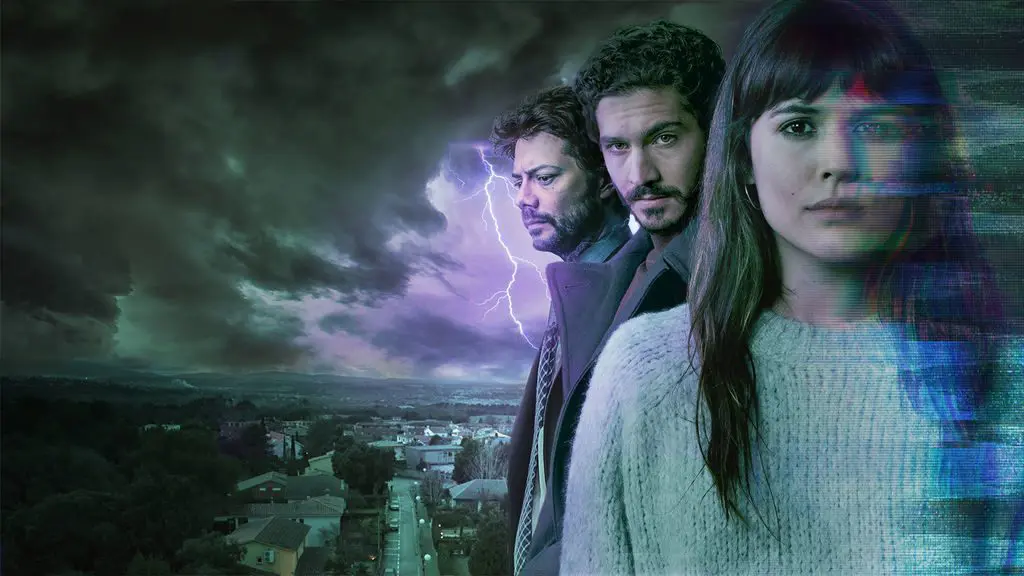Summary
A slick and clever film that is unfortunately devoid of emotional believability, Mirage will nonetheless appeal to genre fans.
Oriol Paulo’s Mirage, known in its romantic-sounding native Spanish as Durante la Tormenta, is a genre-blending, twisty-turny time-travel film that seems to revel in that, sometimes to its detriment. Proudly complex and precisely engineered, it’s a fun experience to try and unpack, but its expansiveness and ambition make it difficult to care about or engage with emotionally.
For some, that won’t be a problem; the fun is in trying to piece together the temporal jigsaw that separates a young boy, Nico (Julio Bohigas), and the woman, Vera (Adriana Ugarte), who moves into his house with her husband David (Alvaro Morte) and her daughter Gloria (Luna Fulgencio) some 25 years after his apparent death. Portentous storms link the two individuals across jostling realities, where changing the past is just as much a possibility as losing the present, and the future teeters uncertainly beyond an ominous 72-hour deadline.

Mirage happily plays with genre and its own time-bending influences, taking great delight in allowing audiences to be swept up in its bold imagination. Paulo — who co-wrote the script alongside Lara Sendim — is an impressive crafter of narrative machinery, though not necessarily emotional frameworks. You can see, in the story of mothers and children and of memories wrenched away, where a lot of the feeling should be, but Mirage moves at such a breakneck clip and incorporates so many madcap turns that the film struggles to anchor its emotional beats to any kind of recognizable reality.
The point, of course, is that reality is suddenly unrecognizable for Vera, who is transplanted into an alternate life where she excelled in the career she abandoned, where David is married to someone else, where Prieto (Javier Gutierrez), Nico’s murderous neighbor, roams free, and where Gloria is nowhere to be found. Vera’s attempts to figure all this out are also the audience’s; the appeal of Mirage is its trickiness, its cleverness, and its overall design. But the film’s plot and characters don’t ripple through into our reality. They are, ironically enough, a fleeting mirage, there and then forgotten just as quickly.




